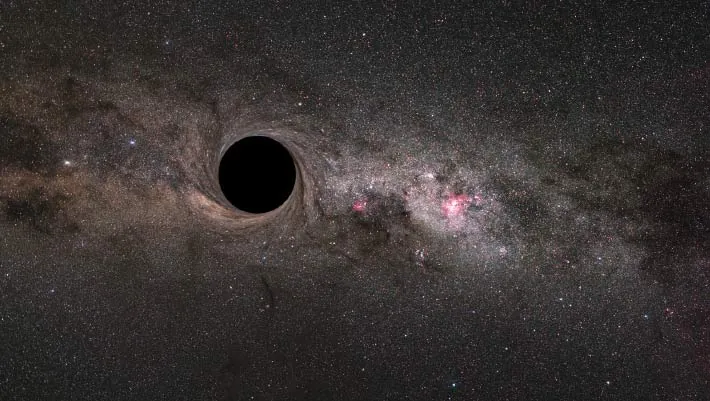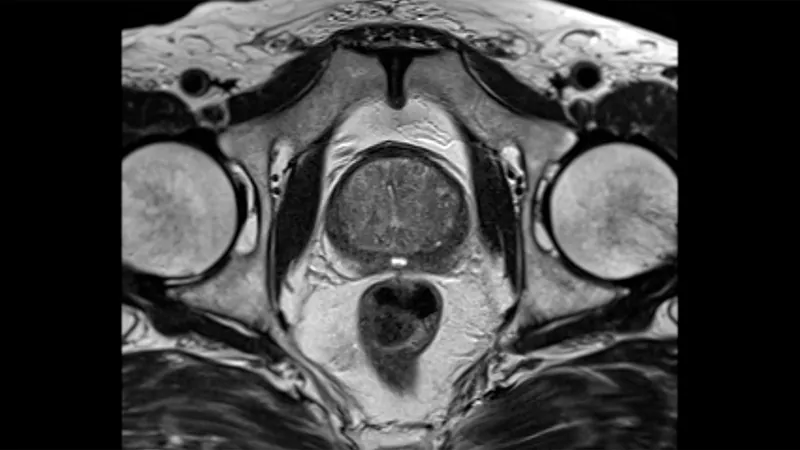
Primordial Black Holes: The Dark Matter Candidates That Could Impact Our Solar System!
2024-09-18
Recent Research Findings
Recent research from a team of physicists at MIT has brought to light a compelling possibility regarding primordial black holes and their role as potential dark matter candidates within our Universe. These enigmatic objects, formed during the initial moments of the Big Bang, may pass through the inner Solar System with surprising frequency – potentially once every decade!
What Are Primordial Black Holes?
Primordial black holes are fundamentally different from the astrophysical black holes we might be familiar with, which are created when massive stars collapse. Instead, primordial black holes are thought to have formed from the gravitational collapse of dense regions in the early Universe. This means they can vary in size, ranging from the mass of a single atom to the heft of the largest known asteroids.
Their elusive nature makes detecting them particularly challenging. Current dark matter research has focused on identifying exotic particles, yet these endeavors have yielded limited results. The idea that dark matter could manifest as these primordial black holes has gained popularity since it offers a new avenue for exploration.
The Cosmic Impact of Passing Black Holes
In their study, the MIT research team constructed detailed simulations of our Solar System, incorporating gravitational interactions between planets and their moons. Their findings reveal that these primordial black holes could exert a gravitational influence significant enough to cause measurable changes in the orbit of Mars. Specifically, if a primordial black hole passed within a few hundred million kilometers of the red planet, it could induce a wobble in its orbit – a minute deviation of about one meter over several years.
Dr. Sarah Geller, co-author of the study, emphasizes that while primordial black holes are not anchored in the Solar System itself, they move throughout the Universe and could periodically traverse the inner Solar System: “The probability is that they are going through the inner Solar System at some angle once every 10 years or so.”
The Search for Evidence
This groundbreaking research offers a potential pathway for detecting primordial black holes using existing technologies that monitor Mars. Should researchers identify this unusually slight wobble, it could indicate the passage of one of these invisible giants. However, confirming the cause of the disturbance will require extensive comparisons against ordinary asteroids to discern whether the change is due to a primordial black hole or a conventional space rock.
“The challenge lies in distinguishing between the typical speed and distribution of these boring space rocks versus the much more peculiar trajectories we expect from primordial black holes,” noted Prof. David Kaiser, senior author of the study.
The Future of Dark Matter Research
As the field of astrophysics continues to advance, the quest to understand dark matter remains one of the most tantalizing pursuits. The new insights into primordial black holes may not only illuminate the nature of dark matter but could also reshape our understanding of the early Universe. Researchers are hopeful that with continued simulations and Mars observations, we could one day uncover the truth behind these cosmic beings.
In the coming years, the scientific community will eagerly watch for signs that would substantiate this groundbreaking theory. Could primordial black holes be the key to unlocking the mysteries of dark matter? Only time will tell, but one thing is certain – the Universe has many more surprises in store for us!



 Brasil (PT)
Brasil (PT)
 Canada (EN)
Canada (EN)
 Chile (ES)
Chile (ES)
 España (ES)
España (ES)
 France (FR)
France (FR)
 Hong Kong (EN)
Hong Kong (EN)
 Italia (IT)
Italia (IT)
 日本 (JA)
日本 (JA)
 Magyarország (HU)
Magyarország (HU)
 Norge (NO)
Norge (NO)
 Polska (PL)
Polska (PL)
 Schweiz (DE)
Schweiz (DE)
 Singapore (EN)
Singapore (EN)
 Sverige (SV)
Sverige (SV)
 Suomi (FI)
Suomi (FI)
 Türkiye (TR)
Türkiye (TR)